The progress of science has been a succession of surprises. The earth turns out not to be the centre of the solar system, let alone universe; space is curved; and humans evolved from single celled organisms. But we might hope that there are no shocks in store when we think about our own minds. After all, who could know more about my mind than me?
But it turns out that almost everything we think we know about our minds is wrong. Psychology turns out to be just as strange and counterintuitive as physics and biology. Here are 10 particularly mind-boggling examples, from my book, The Mind is Flat.
1
The Grand Illusion
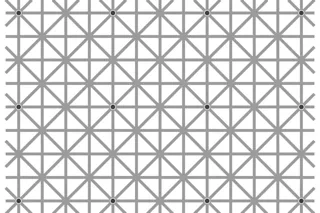
We have the impression of seeing the entire visual world in all its colour and detail in a single visual “gulp.” But in fact, our eyes are only sensitive to colour and detail in a tiny, roughly 2°, window; and our memory for visual experience is extremely sketchy. Have a look at the wonderful 12 dots illusion by Jacques Ninio, to get a sense of your limitations!
2
You can only see one colour at a time
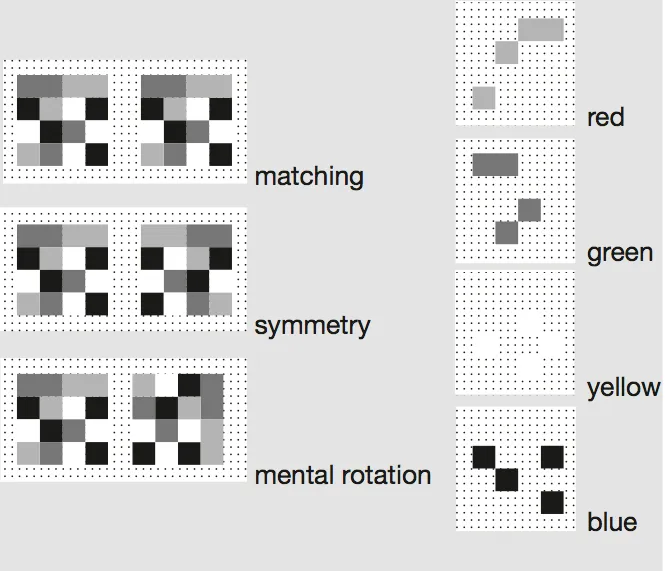
Amazing work by the cognitive psychologists Liqiang Huang and Hal Pashler shows how we can group objects of the same colour together; but when we see the pattern made by, say, everything that is red, we can only see the rest of the pattern as “various different colours.” Are these two coloured grids the same? The best way to check is just to check out red, blue, green and yellow, one after the other.
3
You can only see one object, face, or word at a time
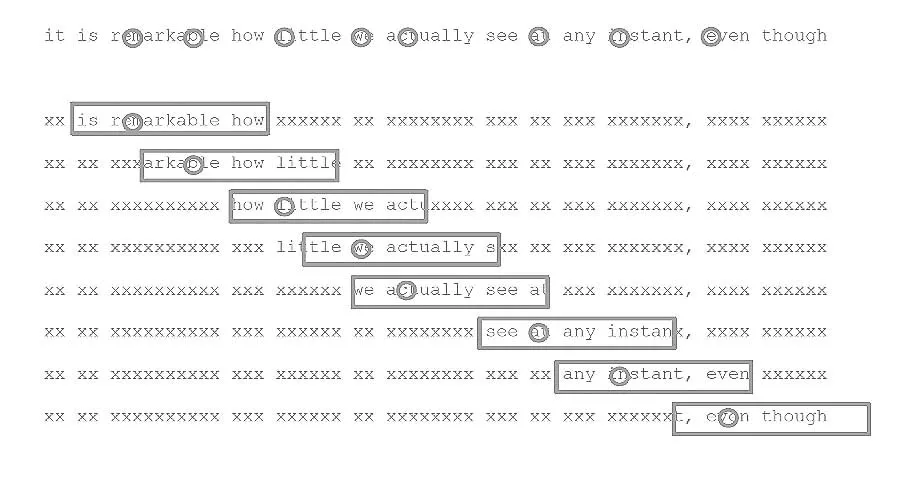
Looking at the text in front of you, you have the feeling that you can see, roughly speaking, dozens or perhaps even scores of words. But if we could track your eyes, and display normal letters only where you are looking (about 15 letters in total), and xs everywhere else, you would notice nothing unusual.
4
Multitasking is a myth
Each of the networks that make up our brain can do only one thing at a time. And complex tasks involve so many networks that any two tasks will almost always demand some of the same networks. So doing one task blocks all the others. With a few exceptions, it turns out that we can only do one thing at a time. When we think we are multitasking, we are actually hopping from task to task. This is one reason why hands-free mobile phones impair driving almost as much as handheld phones.
5
The imaginary imagined tiger
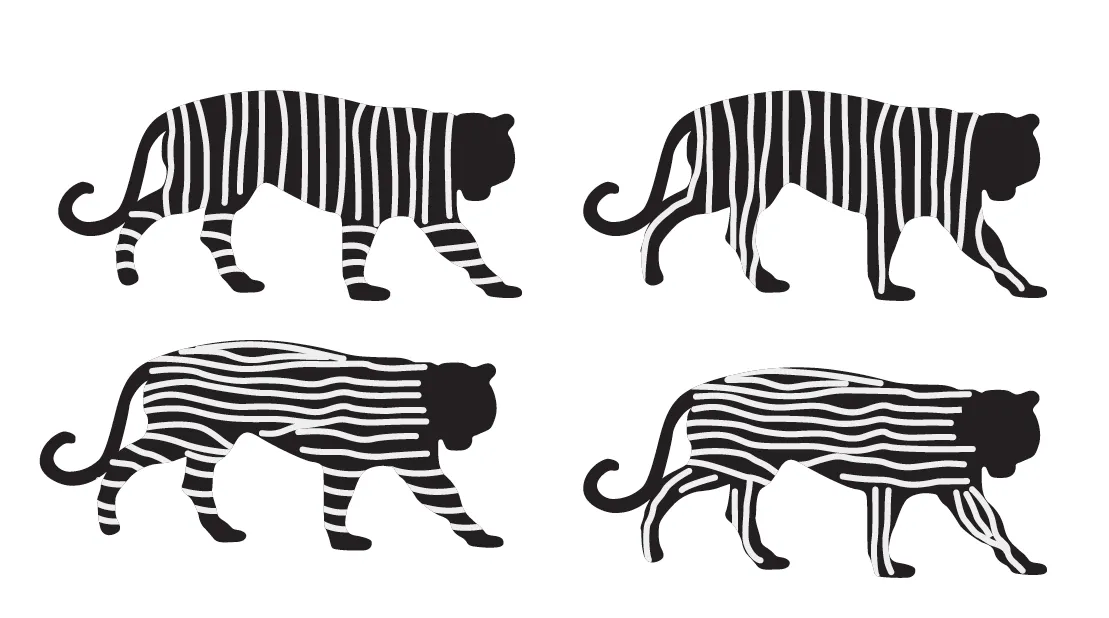
Most of us have the feeling that we can conjure up pretty detailed, and rather realistic, images of everyday objects or perhaps even whole scenes (perhaps especially in dreams). This is just variation of the Grand Illusion: our mental imagery is astonishingly sketchy, jumbled, and inconsistent, however vivid it may seem.
Test yourself by trying to imagine how the stripes of a tiger run across its body and legs, and what happens, exactly, where the body and legs join up? Vivid mental images are, paradoxically, largely imaginary.
6
The ultimate in understated acting
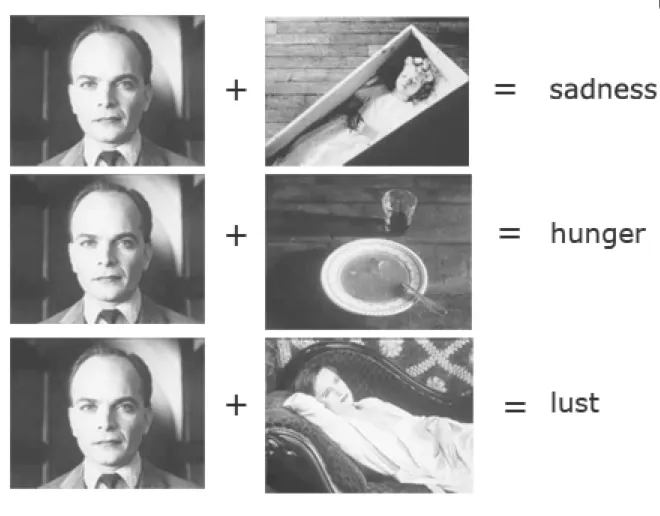
Soviet film director Lev Kuleshov discovered that the very same ambiguous facial expression can be interpreted as expressing a range of emotions, depending on what it is paired with - context is everything! So, sometimes a least, the subtlest acting may be no acting at all. But this means that our brain imposes an interpretation on the face, rather than ‘picking up’ that emotion.
7
Uncertain interpreters of our own emotions

Our interpretation of our own emotions “from the inside” are just as flimsy and dependent on context as our interpretation of other people’s faces. What do I make of an unexpected surge of adrenaline?
A classic study, X and Y, revealed that men found women more attractive when they met them having just crossed a high and rather wobbly pedestrian suspension bridge. Fear of heights led to the surge of adrenaline; but they misunderstood it as signalling attraction.
8
Unconscious thought is an illusion

We fondly imagine that when we put a tricky problem aside (e.g. when solving a crossword), our brain may still be working away on it, in the background. But the brain can only do one thing at a time, and this means that there can’t be an unconscious mind running at the same time as the conscious one.
Stopping when we are stuck can be helpful though: sometimes we just need to forget about the rut we are stuck in and start again; sometimes, a chance, apparently relevant, thought or snippet of conversation might just happen to you as the clue we need.
9
Not knowing what we want
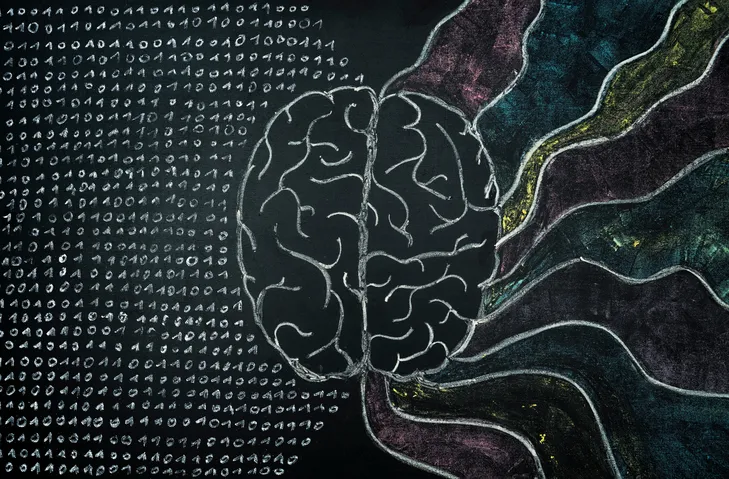
We might think our motives and preferences well up from within. The reality could not be more different: a continual stream of improvised justifications and explanations follows, rather than proceeds our actions and choices.
So-called ‘split-brain’ patients provide equally fluent and plausible sounding explanations (using the language centres in the left half of their brain) for actions that are controlled by either side of the brain, even though the left brain couldn’t possibly know a secret plan from right side of the brain (and his explanations are, in fact, clearly wrong).
10
The illusion of explanatory depth

Psychologists Leonid Rozenblit and Frank Keil have revealed the vast gulf between our sense that we understand the world around us and how it works, and the gappy, confused and downright contradictory explanations we give. We know and understand so much less than we think! Anyone in close contact with a small and inquisitive child knows this really, of course.
When asked to explain how the fridge works, or how electricity flows around the house we are almost immediately baffled (unless we are experts). Even the familiar is often utterly mysterious to us. The same goes, of course, for our understanding of our own minds.
The Mind is Flat by Nick Chater is out now (£25, Allen Lane)